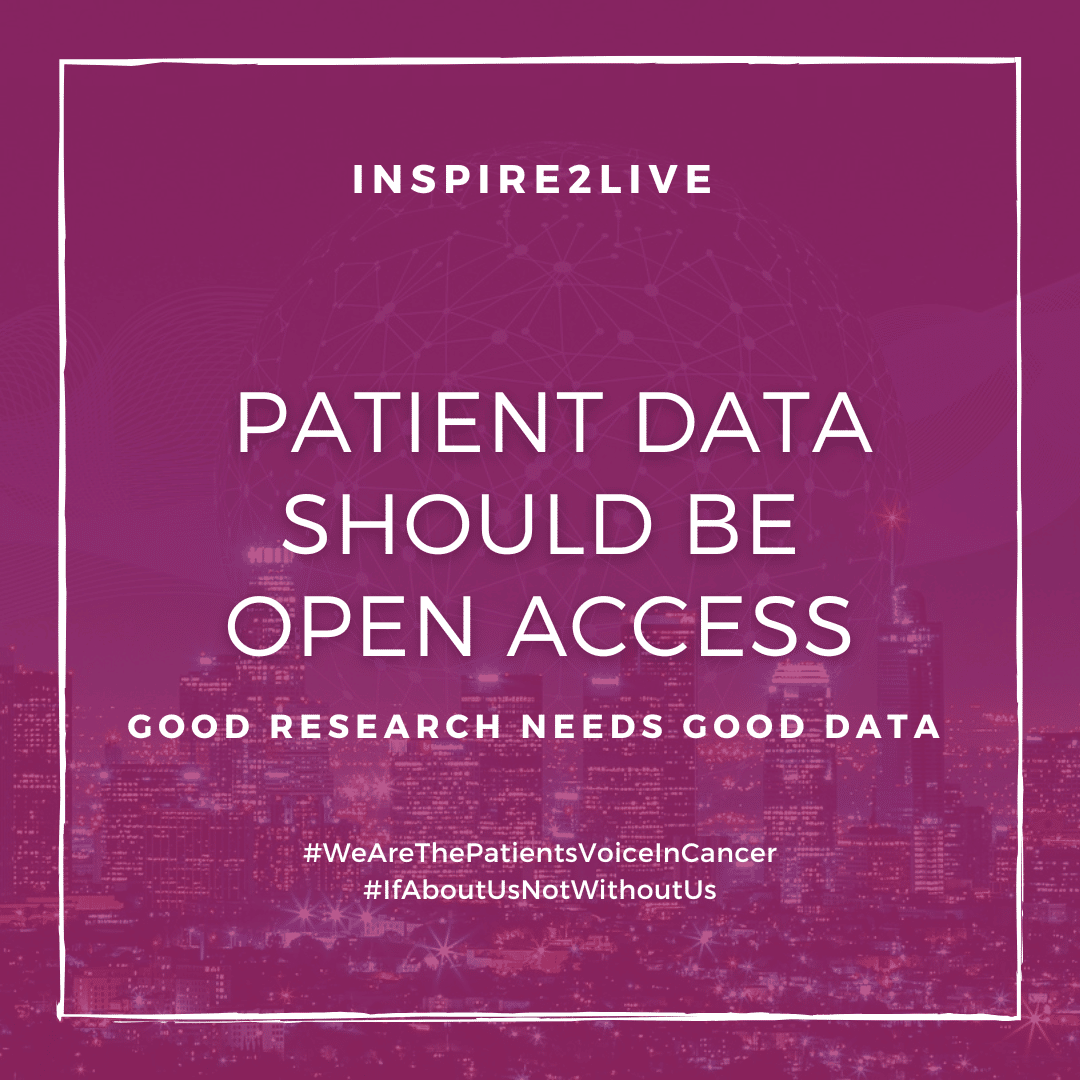Good research needs good data. Good research is not the end goal for patients, that’s about improving quality of life. But it all starts with data, followed by research, treatment and quality of life and it’s about always keeping the end in mind.
There is something elusive about data sharing. The owner of the data, the patient, is usually willing to share their data. They would often be willing to do this without even being asked or having to give consent. They would say “It’s my data, use it!”. It would be nice and simple if we could anonymise patient data and use it in research and industry to speed up the data-research-treatment-quality of life cycle. Nevertheless, the opposite is true and the hurdles for sharing data are enormous. Scientists are reluctant to share because of the prevailing publication culture, industry has their reasons for not sharing due to commercial reasons and legal professionals have hijacked the privacy topic around data. In short, the regulation around patient data has become a business model which does not include patients.
Patients are not present at the table during privacy discussions and we all know that “When you’re not at the table, you’re on the menu.” This is when we start to see the hidden costs of saying no. Every time we prevent research and industry from using patient data for privacy reasons, research takes longer and patients pay the price with their lives. In the Netherlands there was an extreme situation recently where data from COVID-19 patients was not released in order to study excess deaths because the patients had not given their consent. Several weeks later, somebody somewhere made an exception and the data could then be used under certain circumstances. How ridiculous can things get? Data that contributes to societal improvement needs to be freely available and open access should be the standard.
If you are a patient, your data needs to be anonymised and available by law via open access. If you do not agree with this, you would be able to opt out. However, as a patient, you are usually happy to contribute to improving the quality of life of your fellow patients and, for this reason, you are generally willing for your data to be shared. Most patients would be in favour of this approach and the few that disagree could always withdraw. We can do without the minority, but we need the majority data set to make a difference.
We have the knowledge and opportunity to speed up the process of improving quality of life and our moral duty tells us that this is something we need to do. We’re doing good when we contribute to society and enable others to flourish. Patients can – and want to – do good by sharing their data via open access.
So let’s stop talking and start doing!
Peter Kapitein
Patient Advocate Inspire2Live

